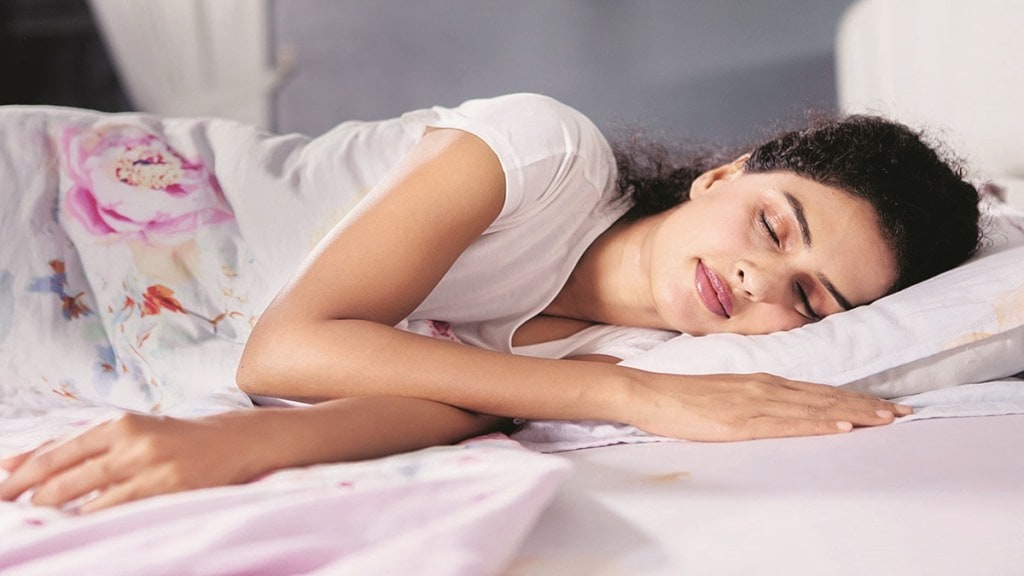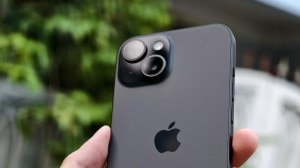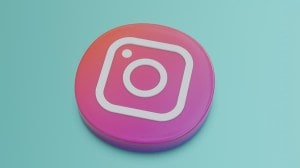Not too long ago, a clear head, physical and mental exhaustion and a restful brain were enough to put a person to a good night’s sleep. Cut to the present, there are now a range of products to do just that—sleep. From the simple sleep-aiding mattresses, pillows and pyjamas to fancy apps and gadgets, and even fancier sleep gummies, humankind has gone a long way in doing something that came naturally to it.
According to a LocalCircles report, 55% of Indians surveyed reported getting less than six hours of uninterrupted sleep. And 28% said their sleep quality deteriorated post the Covid pandemic. Similarly, as per the report titled ‘Great Indian Sleep Scorecard 2022’ by Wakefit, a sleep solutions company, a staggering one in four Indians think they have insomnia. The sleep disorder causes trouble falling and/or staying asleep. The data was based on over 30,000 responses collected between March 2021 and February 2022.
“There has been a rise in people with sleeping difficulties and disorders in recent years, with insomnia, sleep apnoea, REM sleep disorders, restless leg syndrome and circadian rhythm disorders like jet lag and shift work sleep disorder, among others, being the top issues faced by people,” says Dr Shaunak Ajinkya, consultant psychiatrist at Kokilaben Dhirubhai Ambani Hospital and Medical Research Institute, Mumbai. According to him, the modern lifestyle is a significant factor behind it. “In today’s fast-paced world, many people lead hectic, stress-filled lives that can make it difficult to get a good night’s rest,” he says.
And where there is a demand, there is supply. Many businesses have stepped in to have a share in your dreamland, and to make a fortune on the side. According to Statista, the global sleep economy is set to grow from $432 billion in 2019 to $585 billion in 2024.
“The sleep economy is indeed expanding and the market for products designed to help people with sleep is growing rapidly,” says Dr Ajinkya. “This includes products such as smart mattresses, sleep tracking apps, sleep aid devices and even sleep-friendly pyjamas,” he adds.
A dream product
Probably the newest and the least expensive product in the sleep market are the sleep gummies, which are melatonin supplements that are claimed to aid sleep. Earlier this year, P&G launched its Vicks ZzzQuil Natura sleep gummies in India.
“The sleep aid market has shown strong growth as a result of pandemic-induced occasional sleeplessness and the rise in consumer awareness of the need of a sleeping aid,” says Sahil Sethi, senior marketing director and category leader, health care, P&G India, which puts the launch of their product “quite timely, as it seeks to help Indian consumers with the rest they deserve”.
Ananya Agarwal, founder and CEO of wellness brand Nyumi, says, “Our beauty sleep gummies have been one of our top sellers. Since launch, demand has grown 12x, and we also see strong loyalty with existing consumers.”
Melatonin, our body’s natural sleep signal, is the primary component in both Vicks ZzzQuil Natura and Nyumi beauty sleep gummies. They also contain chamomile and vitamin B6, among other ingredients.
On what sets sleep gummies apart from pills, Agarwal says, “Nyumi beauty sleep gummies are a dietary supplement with natural ingredients, unlike sleeping pills which are prescription drugs. Melatonin is produced naturally by our body to regulate our sleep cycles and, thus, it is non-habit forming.”
Seconding that, Sethi says, “Melatonin is not addictive. And Vicks Zzzquil Natura is a nutraceutical intended to supplement our body’s natural production of melatonin, to signal the body to prepare for sleep. It is akin to taking food supplements for other body-produced vitamins.”
“Melatonin is a hormone that is naturally produced in the body to regulate the sleep-wake cycle,” explains Dr Ajinkya. “However, the effectiveness of melatonin sleep aid gummies depends upon the individual’s sleep problems, the dosage used and also the quality of the product. Studies have shown that melatonin can be effective for circadian rhythm sleep disorders such as jet lag, delayed sleep phase syndrome and insomnia related to shift work. However, more research is needed to determine its effectiveness for other types of sleep problems,” he opines.
Although considered safe, some can experience side effects “such as dizziness, headache, and daytime sleepiness. Hence, it is always a good idea to speak with a medical professional before using any kind of sleep aids, especially if you have underlying health conditions or are taking other medications,” the doctor adds.
Despite being a newer entrant in the market, consumer acceptance of sleep gummies is rising, according to Agarwal. “Early on, we would primarily see consumers already familiar with melatonin tablets switch to using our sleep gummies; now we see a large majority of consumers are first-time supplement users,” she says.
If sleep-friendly snacks seem too good to be true, US-based company NightFood takes it two steps forward by selling sleep-friendly cookies and ice creams. Although we are yet to see similar products in India, there are options such as the Sleep Like a Baby by COSMIX, a wellness brand. It is a powdered concoction of ingredients like cinnamon, schisandra, turmeric, jatamanshi, fennel, chamomile, etc, which you need to mix with warm water or milk, stir and sip. It helps in improving the quality and quantity of sleep, and reducing morning grogginess due to poor sleep, as claimed by the company. Several companies also offer sleep special teas to help you with sleep, as they claim.
World of sleep-tech
While it might have been difficult to imagine much innovation in the age-old mattresses, 2019 proved to be a crucial year when The Pod, a smart mattress, woke people up to the reality that smart technology had expanded much. An offering by Eight Sleep company, The Pod adjusts the temperature, wakes you up by increasing temperature and gentle vibration, and tracks your sleep and other health metrics without requiring wearables.
In India, The Sleep Company offers SmartGRID mattresses “for a peaceful sleep experience,” it says. “SmartGRID is a patented Japanese technology used to develop our mattresses, chairs and beds. It is not memory foam or coir; it is the biggest comfort revolution proven to help people sleep better and deeper,” the company says.
Since its inception in 2019, The Sleep Company has reportedly sold about 200,000 mattresses with a low return rate of 2-3%. Its consumer base has grown to 100,000 and the company that started as an online-only store has expanded to 18 physical stores across nine cities, as per a report.
When it comes to sleep-tech, many gadgets are available such as smartwatches and FitBits to track sleep, sleep buds to block out noise, white noise machines, smart lamps, etc.
According to a survey by medical device company ResMed, about 53% of the over 5,000 Indians surveyed said they had tried to address sleep problems through devices.
“While smartwatches can provide valuable information about your sleep patterns, it is unclear whether they have a significant impact on sleep itself,” says Dr Ajinkya. “One potential impact of wearing a smartwatch to track sleep is that it may be uncomfortable or distracting, leading to difficulty falling or staying asleep. Some people may also become overly fixated on tracking their sleep data, leading to obsessiveness, increased anxiety and stress about their sleep quality,” he explains.
However, the general experience is a mixed one as “some people may find that tracking their sleep with a smartwatch helps them make positive changes to their sleep habits, such as going to bed earlier or avoiding caffeine before bedtime. Additionally, some smartwatches have features like gentle vibrations or alarms that can help you wake up more gradually and feel more refreshed in the morning. Overall, the impact of using a smartwatch to track sleep is likely to vary from person to person,” the doctor says.
When it comes to the intersection of sleep and technology, sleep-related apps are in plenty. Calm and Headspace are among the most downloaded ones. They offer guided meditation, content on mindfulness, soundscapes and nature sounds, breathing exercises for calmness, among other features. According to Business of Apps, Calm generated an estimated $200 million in revenue in 2020, the year when Covid struck, a 33% rise on the previous year. Similarly, Headspace made an estimated $150 million the same year. Yours App, Sleep Reset, Stella Sleep, Sleep Cycle, Sleep Easy and Better Sleep are just a few of the many sleep apps available on Google Playstore and Apple’s App Store.
On snooze mode
The sleep industry has not left even travel untouched. In fact, among the wellness trends that are set to dominate this year, sleep tourism comes at the top, as per Conde Nast Traveller UK. So now, people are interestingly heading to places that offer the often-underestimated restful sleep.
While the industry is still nascent in India, The Westin is one such hotels and resorts chain that offers that.
Its signature “Heavenly Bed is uniquely designed to revitalise the body and mind,” says Rahul Puri, cluster general manager for The Westin Gurgaon, New Delhi and The Westin Sohna Resort and Spa. “The hotel also offers signature brand amenities like the Sleep Well Lavender Balm and a thoughtful chef-curated Sleep Well Menu with dishes that help enhance the quality of sleep. There is an in-house yoga practitioner who can assist with relaxation and meditation techniques, which reduce insomnia and foster uninterrupted sleep,” he adds.
From hotels offering packages for sleeping and airports having sleep pods to massages and spas, the distinction between sleep, wellness and healthcare has surely faded, for those who can pay.
How much sleep do you need?
While the recommended amount of sleep varies depending on age, lifestyle and individual needs, most adults require about 7-9 hours of sleep per night to function optimally. “However, there are some people who can function well with less sleep, and this is generally considered to be normal as long as they do not experience excessive daytime sleepiness, fatigue or other negative consequences. There are also some individuals who are genetically predisposed to requiring less sleep. These people are often referred to as ‘short sleepers’, and they typically require only 4-6 hours of sleep per night to feel rested and alert,” says Dr Ravi Shekhar Jha, director and unit head—pulmonology, Fortis Escorts, Faridabad.
However, it’s important to note that being a short sleeper is relatively rare, and most people who believe they can function well on very little sleep may actually be experiencing the negative effects of sleep deprivation without realising it.
Sleepless in the city
Technology: The use of electronic devices before bedtime can interfere with the body’s natural sleep-wake cycle. These devices emit blue light, which suppresses the release of melatonin, the sleep hormone
Modern work life: It leaves many feeling anxious, stressed and burnt out. Many people have demanding jobs that require long hours. All these can result in insomnia, making it difficult to fall asleep
Poor dietary habits: A diet high in caffeine, sugar and processed food can interfere with sleep. Consuming these can lead to fluctuations in blood sugar levels, which can disrupt sleep patterns
Lack of exercise: A sedentary lifestyle, too, contributes to poor sleep. Exercising, on the other hand, not only improves the quality of sleep but also reduces the amount of time it takes to fall asleep
Environmental factors: Not only lifestyle, but environmental factors like air and noise pollution, along with excessive lighting, are some of the environmental factors that can make it difficult to fall asleep and stay asleep








